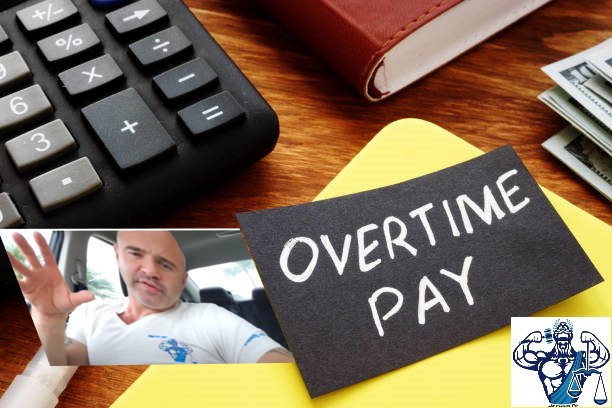Reporting Workplace Harassment or Discrimination
Everyone has a right to work in an environment where they feel safe and respected. If you feel that you are not in a place that promotes safety and equality, you may decide to report some of the infractions that you see. What does that mean for you? Can your employer fire you in retaliation for reporting them? Can you expect to experience other forms of retaliation?
The truth is everyone is protected from retaliation from their employers in an effort to promote those working in businesses to help keep the integrity throughout all levels of the company. Without multiple eyes on the insides of firms, upper management or other leaders in the company may choose to exhibit unsafe or discriminatory acts. If the reporters are punished for this, they may hesitate or refuse to report the behavior.
There are laws in place to protect those who report indecent actions made by employers, so employees feel safer in reporting these issues.
What is Retaliation in the Workplace?
According to the New York State Department of Labor, “retaliation is an action taken against an employee to punish that employee for complaining about labor law violations, providing information to the Department of Labor, or participating in proceedings at the Department of Labor.
Retaliation can appear in various forms; some of the most common are listed below;
Disciplinary action – suppose you have never been officially disciplined at work, and suddenly, after reporting unsafe or discriminatory practices, you have been punished somehow. It’s important to document this should you should to pursue litigation.
Maybe you had your hours cut or received an unnecessary cut in pay and are now forced to find supplemental income. If this directly results from you reporting poor behavior, consider seeking legal guidance.
Assignment of new, more challenging duties at work – maybe your employer isn’t doing direct things to punish you. Still, you have noticed that you are now required to do more challenging responsibilities at work or risk getting demoted. This treatment can be a form of retaliation.
Other Forms of Retaliation in the Workplace
Change in supervision – if you were once able to work independently and are now being micro-managed, this can be a form of retaliation. Personally document interactions with upper management or those supervising you and keep a record of how it has changed or escalated since you made a report.
Denial of promotions – suppose you needed to take time off work to take care of a sick family member, and upon your return, you realize that you were the only employee who didn’t receive a promotion. Or, you have always had good employee performance reviews that typically resulted in a raise, and this abruptly changed; this could be a form of retaliation.
Other Protection Against Retaliation
New York City Commission of Human Rights is among the laws that protect employees from retaliation. “The City Human Rights Law also prohibits retaliation, discriminatory harassment, and bias-based profiling by law enforcement.”
The Civil Rights Act also prohibits retaliation in the workplace as a result of reporting wrongdoings.
There are multiple ways in which employees are protected from speaking up. If you feel your rights have been violated or are being harassed or treated differently since speaking up for what is right, contact your trusted attorney immediately.
Wrongful Termination Due to Reporting Workplace Harassment or Discrimination
Because New York is an “at-will” state, that means that both the employee and the employer can terminate employment without notice or reason, barring illegal reasons for terminating employment.
Wrongful termination applies when an employee is let go for illegal reasons, such as discrimination based on color, age, sex, and more. Wrongful termination can also apply to cases where an employee reported unsafe behavior, such as harassment or discrimination within the workplace, and they were let go as a result without other valid reasons.
Proving that a wrongful termination occurred can require gathering evidence such as past employee performance evaluations, past pay increases, and more. Your experienced attorney may also wish to speak with co-workers and upper management who may no longer be with the company, request your entire employee file for review, and thoroughly review the employee handbook and your report of wrongdoing. All of these items will help develop a compelling case as to why, without reporting the infractions you saw, you would have otherwise remained reasonably employed.
Know Your Rights
You should never fear retaliation or discrimination for pointing out evident wrongdoings in the workplace. Several protections are in place, so others feel free to report immoral or harmful behavioral patterns.
What began over 15 years ago with a focus on mom-and-pop business protection, our firm has grown to accommodate businesses of all sizes and handle the complex cases that some law firms just aren’t willing to touch.
Miletti Law doesn’t shy away from a case, big or small, and we vigorously defend your rights in the workplace. We are the strongest name in law, and after just one phone call, you will understand why.
If you feel that you are being unfairly treated, discriminated against, or harassed at work and need to report it or are being treated this way due to reporting wrongdoings, don’t hesitate to contact our office. Call us today at (314) 648-2586 to speak with one of our staff who could assist!
Also, don’t forget to visit and subscribe to our YouTube channel at www.youtube.com/milettilaw where we offer over a hundred videos where we advise you as to your rights and provide free guidance to help you navigate difficult employment related issues
 Professional Legal & Business Services And Representation - English & Espanol!
Professional Legal & Business Services And Representation - English & Espanol!

 314-648-2586
314-648-2586 CALL US NOW
CALL US NOW







